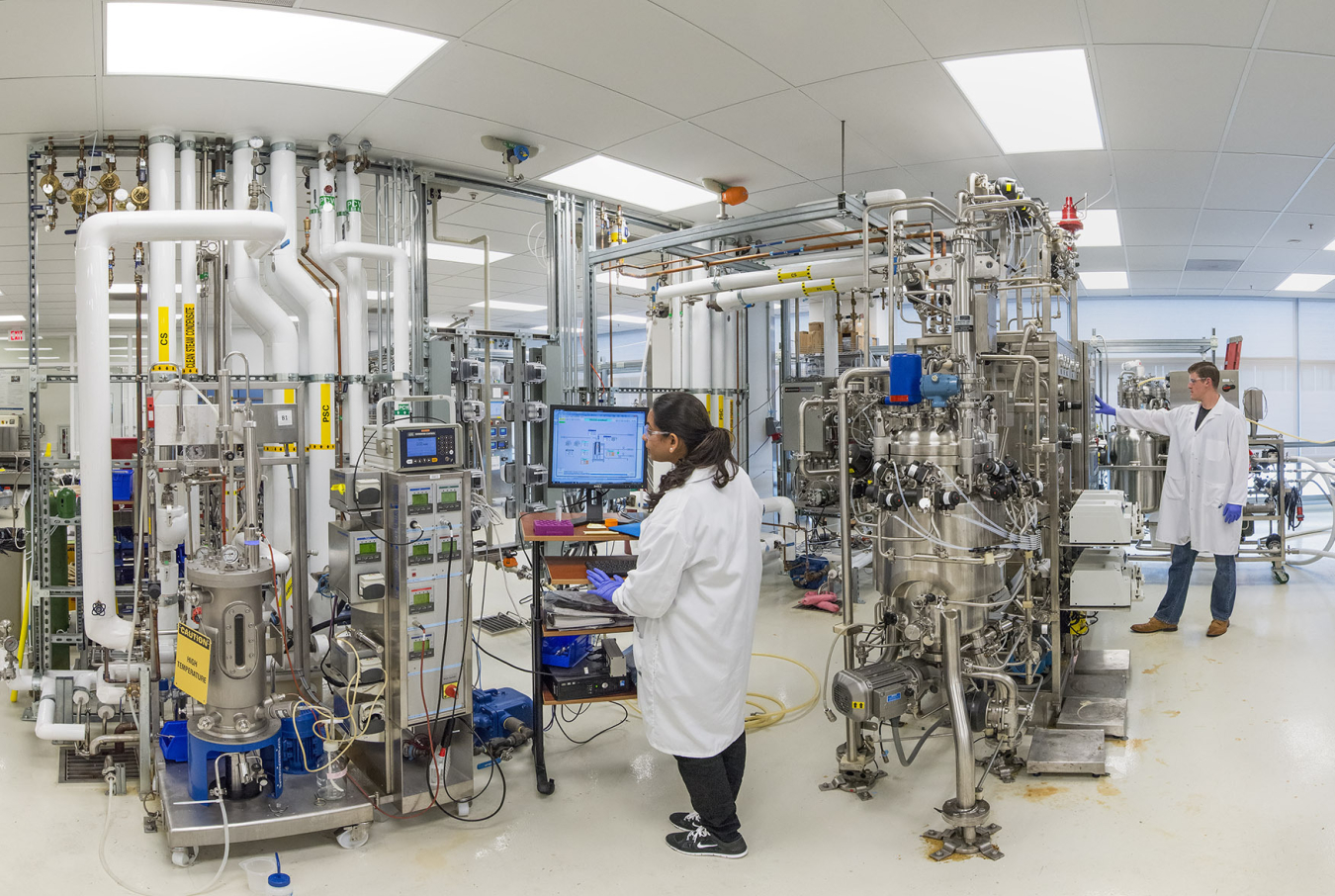For every barrel of crude oil used in the United States, 16% goes toward making products.
Office of Critical Minerals and Energy Innovation
October 13, 2015
Plastic water bottles are among the products that some companies are now producing with bio-based chemicals instead of fossil fuels. The Energy Department’s Bioenergy Technologies Office is researching ways that bioproducts can improve the economics of new types of biofuels.
For every barrel of crude oil used in the United States, 16% goes toward making products ranging from everyday plastics to specialty chemicals in addition to making liquid fuels. From deli containers to industrial lubricants, these chemicals and products are a crucial, yet almost invisible part of our daily lives.
Many companies are exploring the business potential of using plant materials instead of petroleum to make plastics. Coca-Cola uses sugarcane instead of petroleum for its PlantBottleTM and Lego recently announced that it will develop a bio-based alternative for its Lego bricks and packaging. Products made using plant alternatives to fossil fuels are called bioproducts or biobased products. A new U.S. Department of Agriculture report found that in 2013 alone, the biobased products industry contributed already almost $400 billion to the U.S. economy.
Here at the Energy Department’s Bioenergy Technologies Office, we are researching ways to produce bioproducts in a way that also enables the production of biofuels. Recently we announced that we will fund two universities—Texas A&M and Ohio University—to develop technologies that can be used to create bioplastics and bio-based chemicals. Bioproducts are a growing part of our work, which includes these exciting developments:

Indiana-based Spero Energy used funding from the Energy Department’s Small Business Innovation program to develop a technology that uses plant materials to produce chemicals that can flavor barbecue potato chips.
1. We’ve developed bio-based chemicals and products
Energy Department funding for research and development has helped companies commercialize plant-based building blocks for commodity chemicals. Genomatica engineered an organism and fermentation process that enables production of the bio-based chemical butanediol from sugars, and the process was licensed to companies including BASF. Indiana-based Spero Energy used funding from the Energy Department’s Small Business Innovation program to develop a technology that uses plant materials to produce chemicals that can flavor barbecue potato chips.

2. We’re helping companies scale up their production of bio-based chemicals
Funding from our office was used to build and now to continually operate the Advanced Biofuels Process Demonstration Unit at Lawrence Berkeley National Laboratory. This facility is open to researchers and companies involved in biofuels research and development, and helped industrial biotechnology company Lygos, Inc. scale up and clean up its production of malonic acid—a chemical in pharmaceuticals, cosmetics, and food—using biomass-derived sugar instead of petroleum. The National Renewable Energy Laboratory has facilities that allow companies to continue to scale up their processes. Companies have also built upon processes they developed through Energy Department funding to expand to green chemical successes, such as the process by researchers at Pacific Northwest National Laboratory and Archer Daniel Midland Company to create propylene glycol from renewable sources.
3. We’re finding new ways to produce biofuels and bio-based products together
In July, we held the Bioproducts to Enable Biofuels Workshop, focusing our discussion with bioenergy industry professionals and national laboratory researchers on how a growing bioproducts industry can help advance an industry for next-generation biofuels. Biofuels and bioproducts involve many of the same production process steps, and there is the potential to produce them alongside each other in the same biorefinery. The Bioenergy Technologies Office’s main approach for bioproducts has been to develop them in tandem with biofuels as a way to replace the whole barrel of oil with biomass-based alternatives. In July, we awarded funds to several companies and universities to develop valuable bioproducts along with biofuel from algae. Last year, we awarded funds to five organizations to develop bio-based chemicals, products, and fuels, and these projects are moving forward.
Although petroleum isn’t burned as gasoline when it is used in plastics and other products, greenhouse gases are emitted from the energy that is used to extract the crude oil and produce the products in a factory, and eventually, when the product degrades. Bioproducts also require energy to be produced; however, the plants used to make them absorb carbon dioxide as they are grown. The energy required to manufacture different types of bioproducts and biochemicals varies and can be greater or less than petroleum. Scientists at the Energy Department’s Argonne National Laboratory are using the GREET model (which stands for Greenhouse Gases, Regulated Emissions, and Energy Use in Transportation) to study the greenhouse gas emissions of many bioproducts. They have found that many bioproducts show reduced greenhouse gas emissions over their lifetime compared to their petroleum-based alternatives.
With these efforts, we’re working to find beneficial, bio-based replacements for the whole barrel of crude oil. Our partner companies, laboratories, universities, and other research institutions are achieving successes through Energy Department funding and also through work of their own. We’re happy to support the development of biofuels and bioproducts that can reduce our dependence on foreign oil, reduce greenhouse gas emissions, and contribute to U.S. job growth. Learn more about our work.


